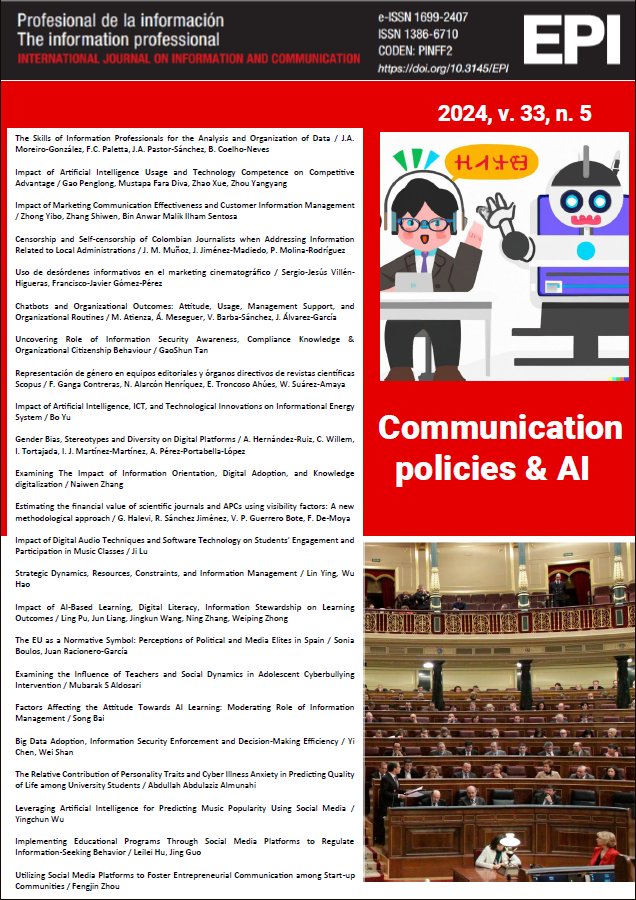Gender Bias, Stereotypes and Diversity on Digital Platforms
DOI:
https://doi.org/10.3145/epi.2024.0510Palabras clave:
Gender Bias, Stereotypes, Diversity, Platformization, Gender Identity, Social Media, Social Networks, Influencers, Youth, Young People, Inequalities, Digital Practices, Twitch, Discord, Tiktok, Instagram.Resumen
Social media offer young people opportunities to socialize and experiment with identity formation, but also give rise to the gendering of digital practices. Gender bias and the platformization of gender performance concur in the masculinization of platforms that are considered most valuable in marketing terms, in gender stereotypes and hate speech towards anything that does not conform to the norm. In addition, these digital platforms are spaces for self-expression and reflection with a great potential for uncovering inequalities and reverting them. This research focuses on exploring this ambivalence in digital practices and on informing on when gender boundaries are weakened and when the inequalities are strengthened. A Likert-type scale was developed with questions on the perception of masculinity or femininity in the production of six important influencers in Spain. The sample was made up of 622 young people between the ages of 14 and 30. The results show that some platforms substantiate gender stereotypes, and that the policies of platforms such as Twitch or Discord favor certain identities and ideologies that privilege the identity declarations of cisgender, white, heterosexual men. In short, the gendering of platforms creates power relationships with cultural and economic implications, and so the underlying gender biases of their content regulation policies merit in-depth study.
Descargas
Descargas
Publicado
Cómo citar
Número
Sección
Licencia
Derechos de autor 2025 Profesional de la información

Esta obra está bajo una licencia internacional Creative Commons Atribución 4.0.
Condiciones de difusión de los artículos una vez son publicados
Los autores pueden publicitar libremente sus artículos en webs, redes sociales y repositorios
Deberán respetarse sin embargo, las siguientes condiciones:
- Solo deberá hacerse pública la versión editorial. Rogamos que no se publiquen preprints, postprints o pruebas de imprenta.
- Junto con esa copia ha de incluirse una mención específica de la publicación en la que ha aparecido el texto, añadiendo además un enlace clicable a la URL: http://revista.profesionaldelainformacion.com
La revista Profesional de la información ofrece los artículos en acceso abierto con una licencia Creative Commons BY.




